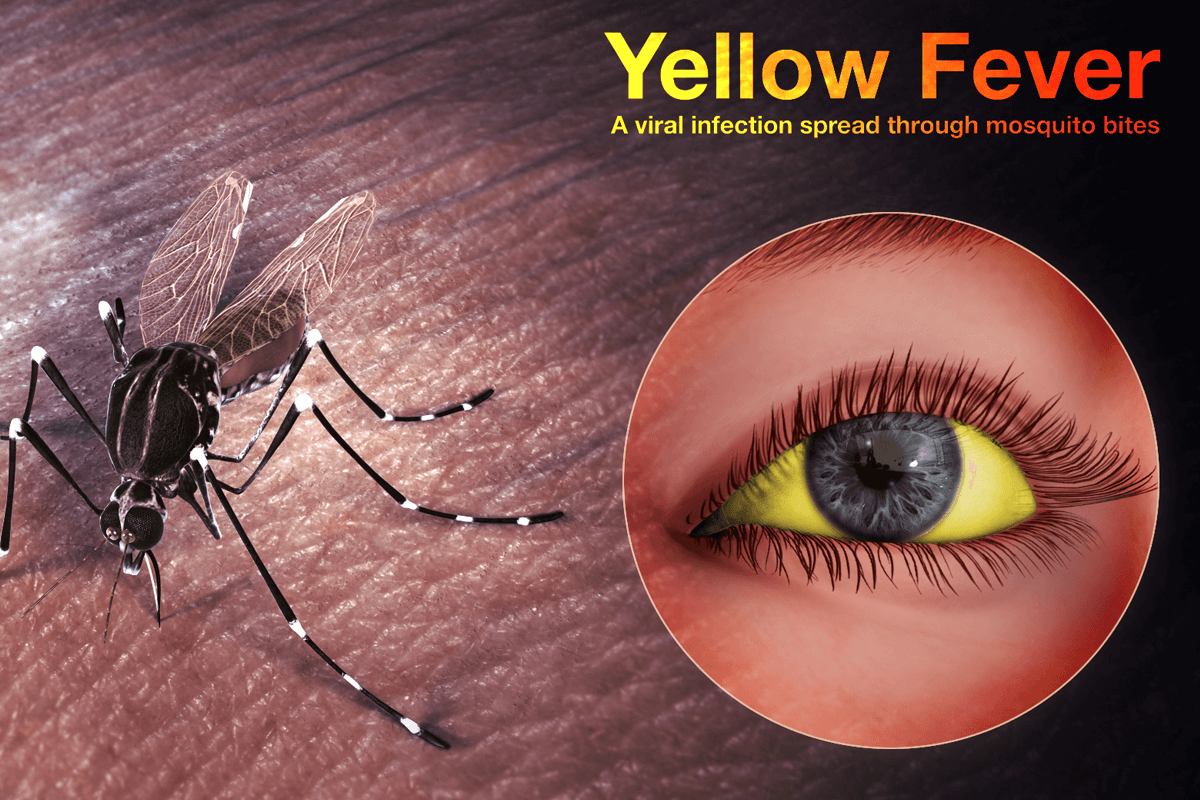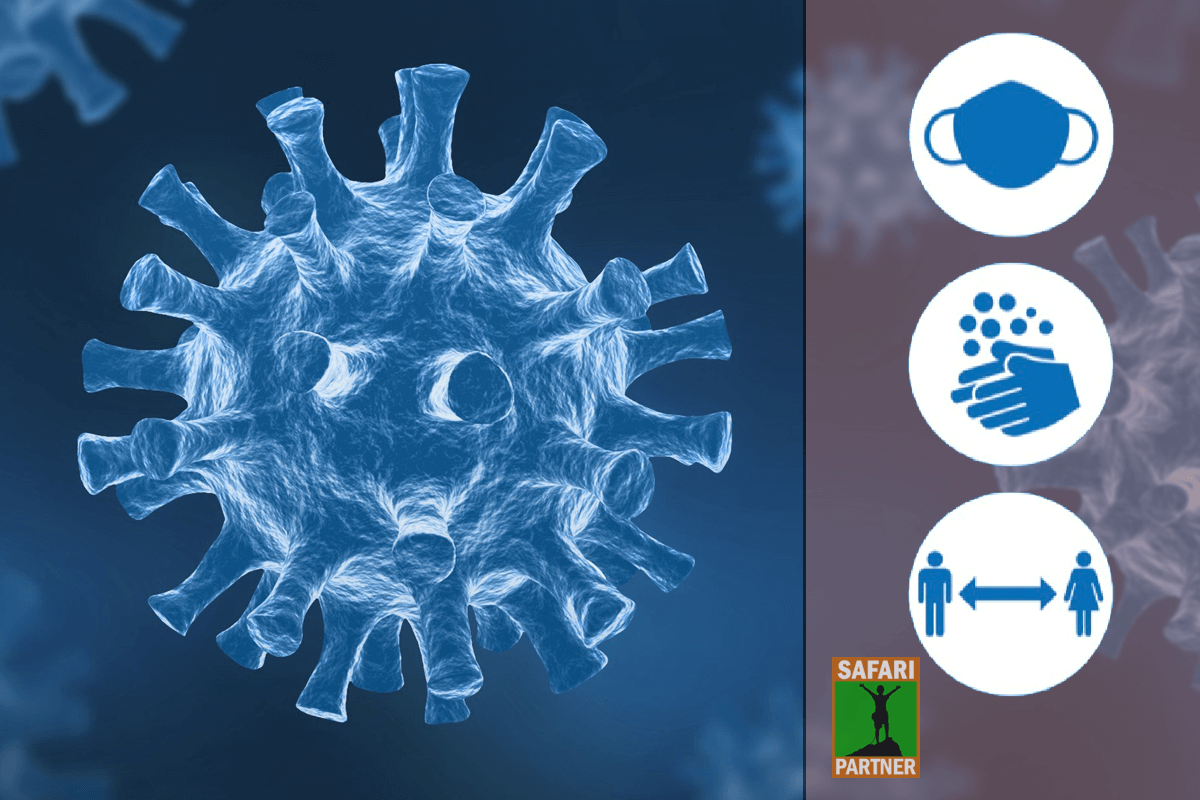Going on a safari is extremely exciting and rewarding and therefore we wouldn't want it to be ruined by sickness.
Good preparation is the best way to ensure that you won't get sick, or even worry about getting sick while you explore the jungles and traverse the savannah. And that is where vaccinations come in.
Before we go any further, please remember that vaccinations are not a 100% guarantee against sickness and that each person is different so talking with your doctor is very important.
In this article, we'll take a look at what you should know about getting shots before your travel and how to approach various aspects of the topic.
Before Travelling
Check For Outbreaks
After choosing your travel destination and activities, you should check with your tour operator (or newspapers) about any possible outbreaks or surges in sickness. While some of the outbreaks will already be talked about in international media - such as Ebola and Zika, others might be unknown to someone who isn't local in the country.
This is a small but important activity to help you prepare for the trip. If there is nothing to worry about, then great - no problem. If you learn of some outbreaks, then you can decide what exactly to do - based on your doctor's advice.
Some outbreaks to look out for include Ebola, Zika virus, Coronavirus, Rabies, and Tetanus among others. It will be different depending on the country/region you intend to visit.
Check With Your Doctor
Whether you find that there are new surges in disease or not, you should always check with your doctor for professional advice. Your doctor shall give you travel-specific advice on what you can or shouldn't do.
You will need to be completely honest about your destination, length of trip, activities, diet and many other related things.
Once again, this is to make sure that while you are on safari, your only worry is being present and enjoying every single moment.
Vaccinations
| DISEASE | SPREAD |
|---|---|
|
Mosquito bite. |
|
Food & Water. |
|
Blood & Body fluids. |
|
The saliva of infected animals. |
|
Food, Water, Faecal & Oral |
|
Air-borne. |
Required Vaccination
The most widely and commonly required vaccination for travelling in Africa is the yellow fever vaccination.
In many countries, direct flights with no layovers in yellow fever-prone countries might be allowed without the strict requirement of the yellow fever vaccination certificate. This is however not the standard procedure and you are advised to get the vaccination before setting off for your trip.

The yellow fever vaccine is administered only once and you never have to get another shot again. Therefore, If you have previous visited tropical countries and already have the yellow fever vacccination card, there is no need for a fresh vaccination.
Recommended Shots
Depending on the situation with disease outbreaks and prevalence, the following vaccinations can also be important. In most cases, no one will ask for these but situations change.
In general, vaccinations for Hepatitis A, Hepatitis B, and the Common flu are recommended considerations.
Coronavirus (COVID-19)

Currently, most African countries have no requirements for COVID-19 vaccinations but some check for a negative PCR COVID test within the last 72 hours. If you already have documentation for your COVID-19 vaccines and boosters, just have a photocopy with you because some places might want to check.
You should know that having COVID-19 or any kind of airborne disease will automatically disqualify you from some activities - specifically, seeing chimpanzees and gorillas in the wild jungles. This is because these primates can catch human diseases and once they are infected, there would be no way of controlling the spread and bad effects.
While On Safari
To keep with the spirit of prioritizing your good health while on safari, here are some other things you should consider as good health precautions and practices.
1. Hand Washing.
As humans, we touch so many unclean surfaces each day and transfer those germs into our systems. As we have learnt during the coronavirus pandemic, Washing hands can save lives. If you can also avoid touching most surfaces, all the better.
Whether it is from interacting with people, holding common surfaces (door knobs and railings) or using bathrooms, handwashing is a good practice to make sure you are safe for yourself and others.
2. Dietary Restrictions
As you plan your safari, don't forget about your dietary preferences. This is important information to communicate to your hotel/lodge in time such that they are fully prepared and you have no need to worry about your food.
This means you will need to be measured on how much new food you get to try. Maybe some research can give you an idea of what to stay away from. You can also consult your hotel or tour operator.
3. The Street Food
In cases where you travel through an area experiencing a surge of disease, especially food-related diseases such as diarrhoea or cholera, you should be extremely careful with street food. If possible, you should not take street food if could be unclean.
As a better practice, fruits and vegetables should be washed before consumption. Meats and other fried street food are better off while still hot. Your local guide will help you make the correct choice.
Packed snacks and packaged mineral water are the best options for people whose stomachs are too fragile for street food.
4. Swimming In Lakes
Before you jump into a lake or pond for a swim, first ask around. Some of these water bodies are dirty or have diseases such as bilharzia. Additionally, some water bodies have dangerous animals such as snakes, crocodiles, hippos and more.
Other precautions like using sunscreen, sleeping under a mosquito net and carrying helpful rain gear are also as important. These are often part of your safari packing list and personalized to your specific safari with considerations of schedule, duration, activities and personal wishes.
Related article: How to stay healthy on an African Safari
After The Safari
After your safari, you are hopefully in good health and full of wonderful memories. Sometimes it doesn't happen like that and people catch malaria after reaching home. Malaria might delay showing signs especially if your immune system puts up a good fight.
We recommend that after your safari, you should get in touch with your doctor once again for a routine check-in. This is to make sure that you are fine and follow any doctor's orders he/she might offer.
Final Thoughts
Ultimately, the vaccines you will need are determined by where exactly you are going and the activities you will be engaged in while you are there.
This article is meant to give you an idea of some things to consider and raise some questions which should all be answered by your doctor. Each country will require different things and as conditions change, so do those requirements.
All these measures are in place for the benefit of everyone and we advise that you always check for the very latest information or contact someone in the area. If you are travelling with us, all these considerations are part of your safari planning to ensure that your experience is undisturbed.
